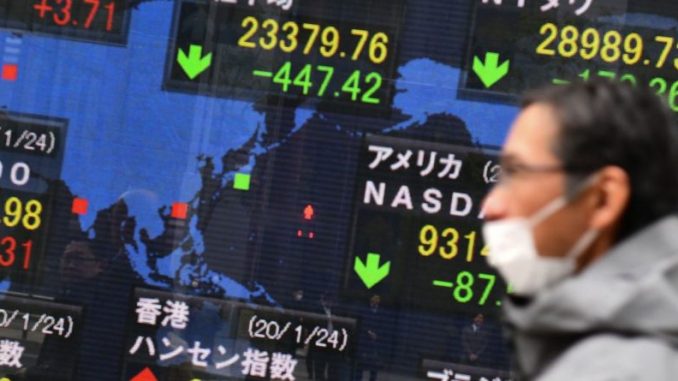on the crypto

Others point out that this correlation does not necessarily translate into causality. Mati Greenspan, the founder of Quantum Economics, expressed his views on the apparent connections between the two events.
"So far, I don't see any direct correlation between the spread of coronavirus and the prices of cryptocurrencies," he says. He also says that, according to his estimates, we are in a season in which those who have savings to invest are moving.
"It is very likely that whatever is driving the cryptocurrency market at the moment, is in" risk-on "mode and not escaping to security," he said.
The BTC network is not losing ground
The stories about closing Chinese crypto mining structures seem to have had limited impact on the hash-rate and the quotation of the Bitcoin network (BTC).
If these events actually had a significant size, a slowdown in the network would be a clear indicator of this phenomenon, especially considering the high percentage of mining pools based in China.
CoinShares Research estimates, in fact, that between 65% and 70% of all BTC mining pools are concentrated in China. Some of the biggest centers of these are Poolin, F2Pool, BTC.com, Antpool and ViaBTC, and they seem to be working as usual.
Other factors at stake
Greenspan explained that other very relevant factors currently exist in the crypto market. The reward in Bitcoin mining will be reduced by half in May, and a theoretical increase in the market price of the asset is expected. Furthermore, greater instability in the Middle East may have sparked the current crypto-rally, which started in January.
“It all started with the strike of the US missile drones in Iraq. For the first time in its short history, we have seen Bitcoin react to a major geopolitical event as a safe haven. And that gave him greater legitimacy. "
Greenspan then analyzed what he believes is the strongest cause of the rapid increase in investment in high-risk assets: the monetary policy of central banks.
He argues that there are continuous liquidity injections by, for example, the American Federal Reserve, the European Central Bank and the People's Bank of China into central bank circuits, and that this money is largely poured into high-risk investments.
As for the potential for hyperinflation, Greenspan highlighted the recent economic flasks of Venezuela and Zimbabwe, adding that at some point, the phenomenon will most likely explode, but not everywhere.
What will happen now?
The global market will certainly be affected by this phase, says Greenspan: “It's like the butterfly effect, so a butterfly flapping its wings in Chicago could cause a hurricane in Tokyo. We have an entire country - currently the largest country in the world - out of the game. Everything will be affected ”.
As for the crypto markets specifically, Greenspan has been very evasive: “How will [the epidemic] affect the price of Bitcoin, I really couldn't say. At the moment, I don't see connections but in the future they could be created “.
